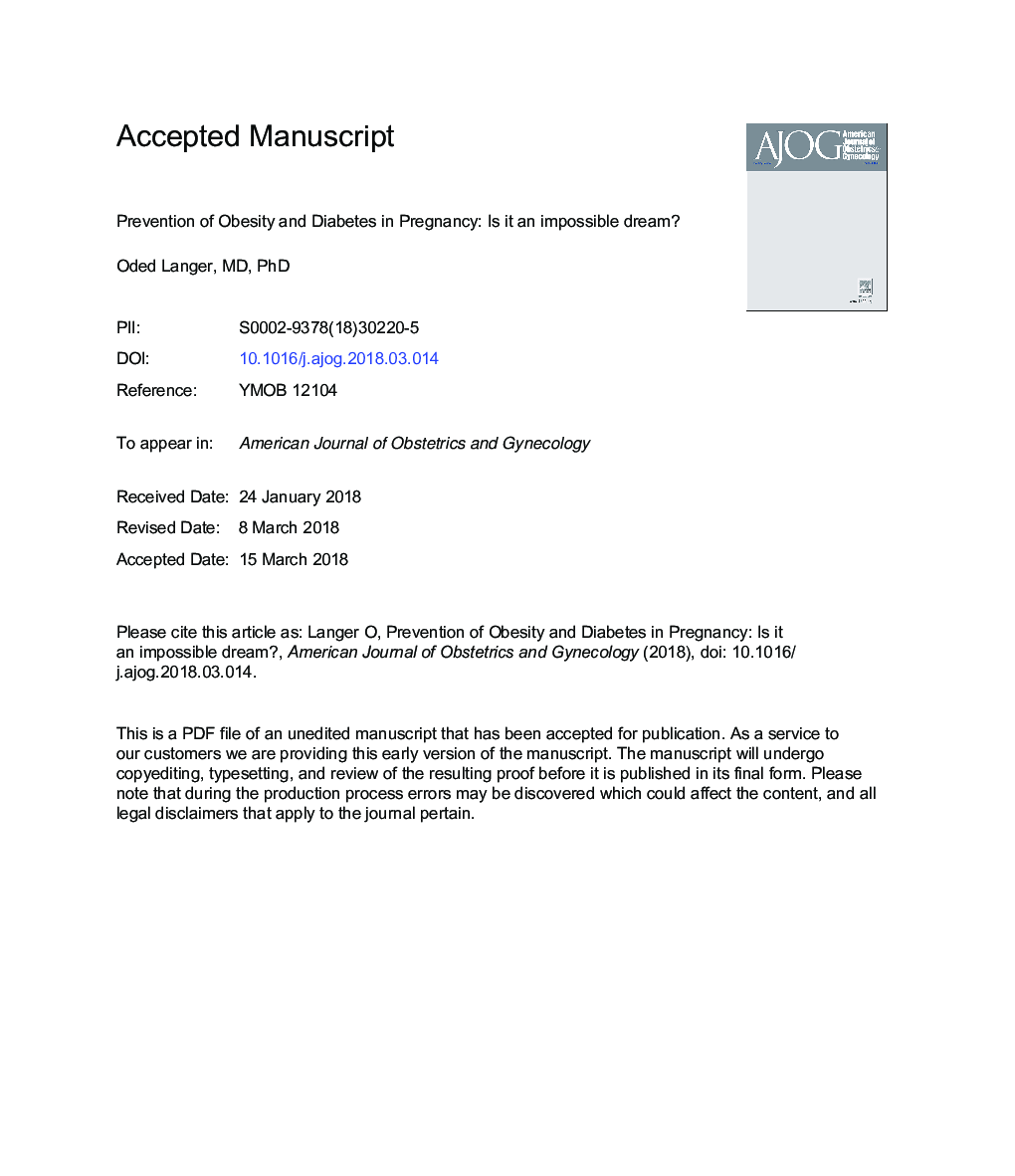| Article ID | Journal | Published Year | Pages | File Type |
|---|---|---|---|---|
| 8752431 | American Journal of Obstetrics and Gynecology | 2018 | 40 Pages |
Abstract
The obesity and diabetes epidemic is an unintended consequence of economic, social, and technological changes. In nonpregnancy, people identified as high risk to develop type 2 diabetes may delay progression by 30-70% with lifestyle interventions and pharmacological agents. In pregnancy, lifestyle interventions have been the primary focus to prevent fetal short- and long-term complications that may evolve into substantial weight gain and gestational diabetes mellitus. The dilemma for obstetricians is whether diabetes and obesity can be prevented and not simply treated after the fact. Interventions after women become pregnant may be too late to see the kinds of meaningful improvements in child and maternal health because there is a short interval from gestational diabetes mellitus diagnosis to delivery. Therefore, future efforts need to incorporate quality research, lifestyle interventions that designate time of initiation and duration during pregnancy, the preventative intervention of a prepregnant “fourth trimester,” coupled with the concept of precision medicine so that there is the potential to make the impossible dream a reality.
Related Topics
Health Sciences
Medicine and Dentistry
Medicine and Dentistry (General)
Authors
Oded MD, PhD,
